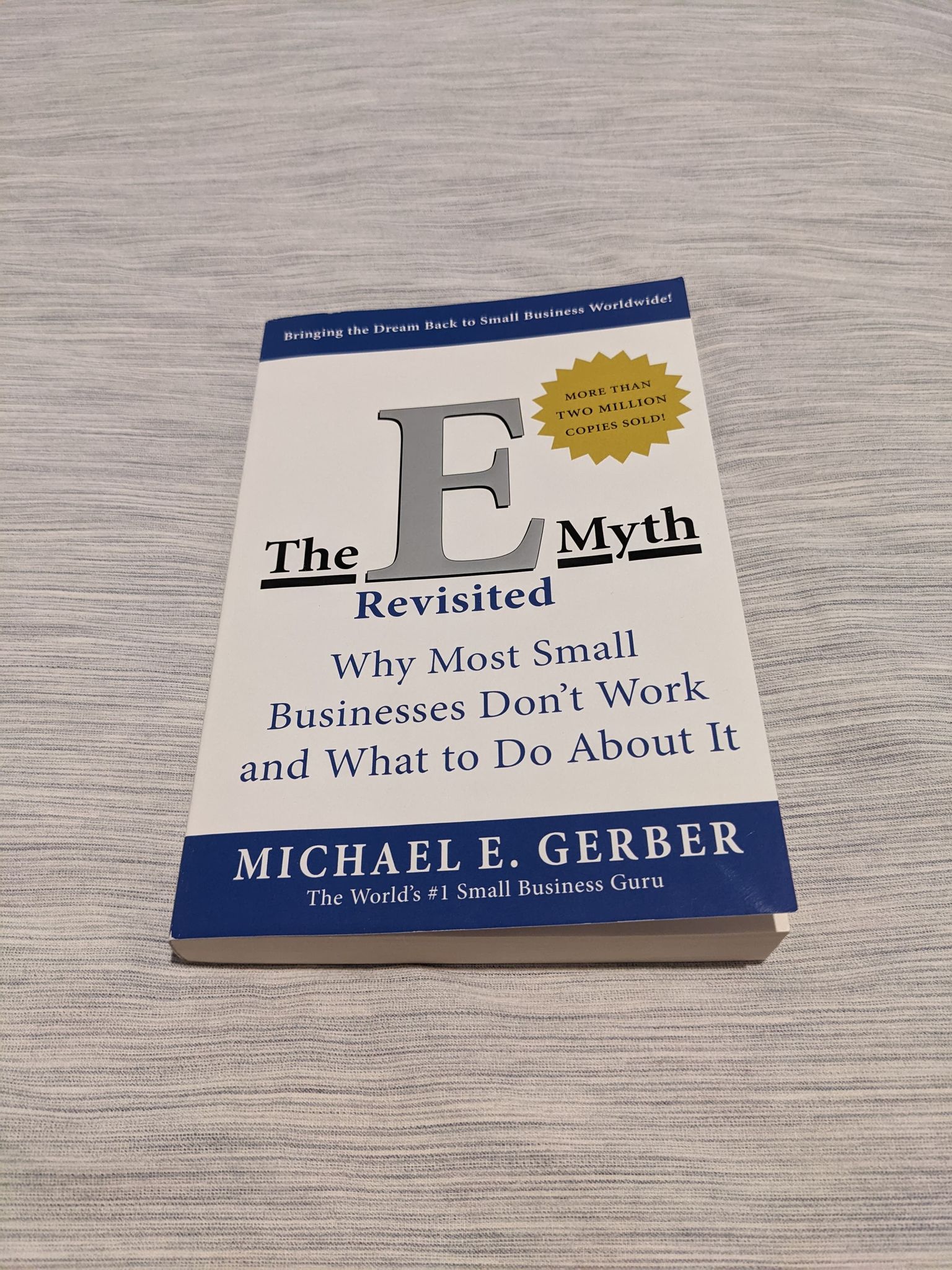"Hey buddy, you're pretty good at your job. You should start your own business."

This is a sentence probably a couple of you have heard or will hear someday. Because when you're good at something, why give credit to the company you work for when you could take all the glory and the pay that comes with it?
In the book of Michael E. Gerber, The E-Myth, he describes why most small businesses don't work and what they can do about it. So if you're like me and watching the Dragon's Den enthusiastically, you might want to look at this book before starting your own adventure.

Here is the first false assumption, which he calls the Fatal Assumption: "If you know the technical work, you will understand a business that does this technical work." There is a lot more to the business than only the technical work. He says many people will go into business only knowing the technical, and they think doing business in this domain is the same. IT IS NOT. That is what fails them.
Secondly, there are three stages for businesses. The first one is infancy. You are the business; you do everything. You can stay in that stage a couple of times if you're just technical, but you won't be able to scale. That is why you need to step up to the next stage, which is adolescence.

In adolescence, you will have employees, but you need to have a system so they will do the tasks you want them to do YOUR way. For this matter, he recommends hiring young people that want to learn, not experienced folks. They will not have experience so they will follow your system to the letter. Your protocols and guides need to be very solid and precise. He also said if you don't have a proper system, you will redo the employees' jobs, be tired, and eventually fire them, which will take you back to infancy to do everything. And ultimately, close because of burnout. That's what statistics are showing.
The last stage is maturity. You need to define the company you want clearly, how you differentiate yourself from others and your vision for the future. As the company leader, you must have a picture of the company's future. That's your job. He often talks about excellent companies like Disney and McDonald's. They both have a system and a great vision and know how to satisfy their clients.

Here is another example of tips he gives in the book. First, consistency is critical. When you go to the barber, you expect the same experience and haircut. That's why you decided to go there. You liked both. If the experience or the haircut changes each time, you won't go back there because you never know in advance the outcome. As a client, if we can't predict the result of the service, it's a bet. And, as clients, we don't like those kinds of bets.
This book has so much more, but I don't want to make this article any longer. If you're just a little bit interested in business or even just curious, it's an excellent book. I highly recommend it.